|
How often does a church congregation have assigned homework? Two weeks ago, our pastor, George Matthew Clash, suggested that we read Psalm 119 daily. I decided to read it in a different version each day and started reading from the Revised Standard Version Bible that I received as a teenager. Next, I read from the New Living Translation, then King James, Amplified, New American Standard, New International Version, and finally The Passion Translation. As I read, I highlighted those verses that were particularly meaningful to me in each translation.
Psalm 119 is a tribute to the Word of God presented in an orderly way. It is the longest psalm in the Bible and is divided into twenty-two stanzas, each with eight verses, and with a total of 176 verses. The Psalm is an acrostic poem where the verses of each stanza begin with a different Hebrew letter. The entire Hebrew alphabet is covered in succession from "alef" to "tau." The eight Hebrew words used to refer to the Word of God in Psalm 119 are law, commandments, ordinances, precepts, decrees, word, promises and statutes. I would like to share with you some of the verses that I highlighted: At the very beginning, the Psalmist makes it clear that God's Word provides a pathway of blessing for us. Both The King James and Revised Standard Version say the same thing in Verse 2. "Blessed are those that keep his testimonies, who seek him with their whole heart." The Passion Translation puts the verse a little differently. "What joy overwhelms everyone who keeps the ways of God, those who seek him as their heart's passion!" Verse 11 is one that I memorized as a girl: "Your word I have treasured in my heart, that I may not sin against you." (NAS) or "I have hidden your word in my heart that I might not sin against you." (NIV) I love the way The Passion Translation articulates verse 48. "I long for more revelation of your truth, for I love the light of your word as I meditate on your decrees." Verse 54 from the NAS version says, "Your statutes are my song in the house of my pilgrimage." Verses 89 and 90 are ones we should all camp on. "Forever, O Lord, thy word is settled in heaven. Thy faithfulness is unto all generations..." (KJV) The Passion Translation says it this way: "Standing firm in the heavens and fastened to eternity is the word of God. Your faithfulness flows from one generation to the next; all that you created sits firmly in place to testify of you." Michael W. Smith and Amy Grant help us to remember the words of verse 105 with their beautiful song, "Thy Word." Thy word is a lamp to my feet and a light to my path." (RSV) The Passion Translation has an interesting way to translate this verse. "Truth's shining light guides me in my choices and decisions; the revelation of your word makes my pathway clear." The New American Standard Version translates verse 137 this way: "Establish my footsteps in Your word, and do not let any iniquity have dominion over me." Several verses talk about the mercies or compassion of the Lord. Verse 156 is one such verse. "Your compassion is great, O Lord; preserve my life according to your laws." (NIV) Verse 160 in The Passion Translation says, "The sum total of all your words add up to absolute truth, and every one of your righteous decrees is everlasting." Amen! Our responsibility, as lovers of God's word, is to delight in His commands and meditate on them regularly. Then we will be walking on the path of enlightenment and blessing. “Tis the Season" is a phrase frequently heard in our society during the weeks before Christmas. The singing of "Deck the Halls" is an annual tradition when we are reminded, "Tis the season to be jolly!" Indeed, it refers to the festivities of the holiday season. However, it was originally used in connection with warm weather and the celebration of springtime. I would like to put a new spin on this phrase by connecting it to the celebration of Advent. This word is from the Latin "adventus," meaning "coming" or "arrival." The four weeks before Christmas are meant for us to prepare for the birth of Christ. It is a season for waiting, reflection, and expectation.
The origins of Advent are difficult to trace. Some say it began in the fourth and fifth centuries in Spain and Gaul as a season of preparation for baptism of new Christians during Epiphany, when the Magi visit Jesus. Others say it started in 380 AD during the Council of Saragossa--a series of bishops meetings in Spain to adopt eight canons of their faith. Still others say it had its origins in 480 AD when monks fasted every day of the Advent season. Most would agree that it was not until the Middle Ages that Advent was linked to Christmas. The Roman Catholics not only tied the birth of Christ to Advent, but also the second coming of Christ in the clouds after He judges the world. Churches who use an ecclesiastical calendar celebrate Advent. They include Roman Catholics, Anglicans, Lutherans, Episcopalians, Presbyterians, and some Methodists. The Advent wreath, evergreens twisted into a circle with four or five candles, are used in many of these churches. Each candle is used to count off the weeks before Christmas. The wreath is meant to demonstrate that there is no beginning or end to God's love for the world. I read in Christianity.com that the wreath was created in 1839 by Johann Wichern, a German man who founded a children's home. He needed a way to help the children keep track of the time when Christmas would arrive. Advent begins on the Sunday closest to November 30. The first candle lit on the wreath is called the Prophecy candle and stands for hope. The second one is the Bethlehem candle that calls for peace. The third candle is the Shepherd candle that represents joy. And the fourth candle is called the Angel candle which stands for love. If a fifth candle is included in the center, it is called the Christ candle that represents purity, light, holiness, and victory. It is lit on Christmas eve. There are Scriptures typically read during the Advent season. These include Isaiah 7:14 and 9:6-7, Micah 5:2, Zechariah 9:9 and 12:10, and Malachi 3:1 All of these point to the awaited Messiah. Another verse that is read comes from Isaiah 40:31. "But those who hope in (wait upon) the Lord will renew their strength. They will soar on wings like eagles; they will run and not grow weary. They will walk and not be faint." It is important that we do this waiting and hoping with expectation and that we reflect on the gift that God has given us. We should be reminded of God's great love for us in that the Son of God is Immanuel (God with us), and that the baby Jesus would grow up to become the sacrifice for the sins of all humanity. He did this so that we could spend eternity with Him in heaven. "He humbled Himself by becoming obedient to death--even death on a cross! Therefore, God exalted Him to the highest place and gave Him the name that is above every name, that at the name of Jesus every knee should bow, in heaven and on earth and under the earth, and every tongue acknowledge that Jesus Christ is Lord to the glory of God the Father." (Philippians 2:8-11) Hallelujah! According to Romans 11, the Church has been grafted into the Olive tree. (representing Israel) Thus, we "share in the nourishing sap from the olive root." (Romans 11:17) It is the root of this olive tree that supports us. This being the truth, would it not follow that when Israel is at war, the Church must also be at war? Ephesians 2:13-15, 18 explains: "But now in Christ Jesus you who once were far away have been brought near by the blood of Christ. He Himself is our peace, who has made the two groups one and has destroyed the barrier, the dividing wall of hostility, by setting aside in His flesh the law with its commands and regulations. His purpose was to create in Himself one new humanity out of the two, thus making peace...For through Him we both have access to the Father by one Spirit."
It is a fact that Satan hates what God loves. He stations demonic principalities over every region. Since Israel and the Church are one, what impacts one impacts the other. As I awoke on Saturday morning, Holy Spirit placed a song on my mind" "Onward, Christian Soldiers." It was written by Sabine Baring-Gould, a Church of England minister who was inspired to write this song so that the children of his church could sing it while marching from village to village. He writes that the entire song came to him within 15 minutes. The text for this hymn became an inspiration to Christians around the world. It is one to use while taking on our responsibilities of advancing the cause of Christ. It is a battle cry for the Church and Israel. Verse 1: "Onward, Christian soldiers, marching as to war, with the cross of Jesus going on before! Christ the royal Master, leads against the foe; forward into battle see His banner go!" Refrain: "Onward, Christian soldiers, marching as to war, with the cross of Jesus going on before!" Verse 2: "Like a mighty army moves the Church of God; brothers, we are treading where the saints have trod. We are not divided, all one body we—One in hope and doctrine, one in charity." (Refrain) Verse 3: "Onward, then, ye people, join our happy throng; blend with ours your voices in the triumph song. Glory, laud, and honor unto Christ the King—This thru countless ages men and angels sing." (Refrain) During this season, we must "Be alert and of sober mind. Our enemy the devil prowls around like a roaring lion looking for someone to devour. Resist him, standing firm in the faith, because we know that the family of Believers throughout the world is undergoing the same kind of suffering." (1 Peter 5:8, 9) Our battle tools are two-fold: Prayer and Worship. Let us use them on behalf of Israel and the Church. Victory has already been won at the Cross of Christ. Our job is to manifest it. July 4, 1776, 247 years ago, our founding fathers signed the Declaration of Independence with two main objectives: (1) A declaration of independence from Great Britain, and (2) a declaration of dependence upon Almighty God. Its writers used the Bible as their example. I wonder how they would feel about the chaos that has ensued in our country. It seems we have endless battles between Christians and non-Christians whose opinions are opposite when it comes to the evidence of a Creator and creation. Moral absolutes are being challenged by those who say there is no such thing. Yet, on the day of America's birth a bell was rung that had a Scripture inscribed on it from Leviticus 25:10. "Proclaim liberty throughout the land to all the inhabitants thereof." That bell remains as a testimony to the foundation from which our nation was established--The Bible.
Our 30th president, Calvin Coolidge (who was born on July 4, 1872), said it well when he looked into the future of our nation. "The foundation of our society and our government rest so much on the teachings of the Bible that it would be difficult to support them if faith in these teachings would cease to be practically universal in our country." Sadly, I see these words beginning to bear fruit. Let us not forget that the Bible was the foundational book used in our schools at the dawning of America. Those of us who hold to the truths upon which our country was established must come into agreement with our forefathers. Dutch Sheets, in a post written on June 22 entitled "God Needs Our Agreement," confirms this. He reminded us of the importance of agreeing with previous generations. Dutch shared interesting information about the foundations of our schools. He wrote, "One hundred six of America's first one hundred eight colleges and Universities were founded on the Christian faith. Students at Harvard and Yale were required to read Scriptures twice daily. Harvard's founders stated: 'All knowledge without Christ is vain.' Its motto was 'For Christ and The Church.' Yale's founders stated that 'Every student shall consider the main end of his study is to know God in Jesus Christ...' Princeton's motto was 'Under God's Power She Flourishes.'...Noah Webster, who published the first American Dictionary of the English language in 1828 said, 'Education is useless without the Bible.'...Webster also said, 'The principles of genuine liberty, and of wise laws and administrations, are to be drawn from the Bible and sustained by its authority. The man, therefore, who weakens or destroys the divine authority of that book may be accessory to all the public disorders which society is doomed to suffer.'" There is a remnant of people in the United State who understands and believes in the foundational truths upon which our nation was established and on the precepts and commandments that are the underpinning of our Constitution. We must declare these truths in agreement with the generations that came before us. We cannot allow the loud voices of descension to override truth. The future of our nation depends upon us. In a post from June 21, Dutch Sheets reminded us of the powerful hymn written by Martin Luther titled, "A Mighty Fortress is our God." I would like to highlight a line from the third verse. "And though this world, with devils filled, should threaten to undo us, we will not fear, for God has willed HIs truth to triumph through us..." Triumph occurs through our declaration of truth. We must take every opportunity God gives us to make truth known. We can take heart from the words of Scripture: "Every word of God is flawless; He is a shield to those who take refuge in Him." (Proverbs 30:5) The one who created the heavens and the earth existed before there was creation. Genesis 1:1 used the Hebrew word Elohim which translates God, Mighty Creator, Omnipotent Power. With His breath He made everything from nothing, spoke order into chaos, and light into darkness. Elohim is the plural form of El that gives recognition to the truth that He is a Triune God—Father, Son, and Holy Spirit. On the sixth day "God created man in His own image..." (Genesis 1:27) His desire was and is to fill our lives with blessings. Psalm 102:27 tells us about the infinity of God. "But you remain the same, and your years will never end."
After destroying life on earth because of its wickedness, God started again with Noah and his family and demonstrated that He is the God who keeps covenant with His people. Nations were birthed from Noah's sons, Shem, Ham, and Japheth. From Shem's family came Abram and another covenant with God. God said, "I will make you into a great nation, and I will bless you; I will make your name great, and you will be a blessing. I will bless those who bless you, and whoever curses you I will curse; and all peoples on the earth will be blessed through you." (Genesis 12:2-3) Abram was blessed with abundant provision through God. To broaden Abram's understanding of Elohim, God said to him, "Do not be afraid Abram. I am your shield, your very great reward." (Genesis 15:1) The covenant God made with Abram (who He renamed Abraham, meaning "Father of a multitude") was sealed with a sign. Every male was to be a sign of the covenant through circumcision. In the generations to come, all male children would be circumcised on the eighth day. (Genesis 17:12) Eight is the number of new beginnings. The story of Abraham and his relationship with God was verbally shared through the generations. However, when the children of Israel were detained as slaves in Egypt, much of what had been handed down from generation to generation was forgotten. After 430 years of oppression and slavery, God appointed Moses to lead them to the Promised Land and used the events of their journey as a way to reintroduce His character. This took place during the second month on the Hebrew calendar. This month has two names: Iyar and Ziv, which means radiance. We are in the first week of this month and can learn from the Israelite journey. Since this month is linked with light it is time for us to ask God for revelation and to radiate God's glory as we learn more about Him. As we look back at the events of this month, we can see that God's desire is for greater intimacy with His children. One of ways that we can accomplish this is through getting to know His names. With multiple names, we have multiple ways to relate to Him. Worship leader Paul Wilbur wrote a song called "The Diamond Turns." He asks the question: "Who is like You Oh Lord among gods? Who can worship as You shine? Who could even know in just a single gaze all the glory of Your face?" God is like a diamond with multiple facets. He is radiant; His light is blinding! Every facet of the Lord is unique and meant to help us in our journey on earth. Again, let's look back at the children of Israel and see how they were developing a new level of relationship with God as they traveled. They saw that God would fight for them as He opened the Red Sea. In the Song of Moses they sang, "The Lord is a warrior." (Exodus 15:3) Then they learned that God is Jehovah Rapha (The God who Heals) when he purified the bitter waters of Marah. God led them as a shepherd so that they became familiar with His name Yahweh Rohi. As they grumbled about the lack of food, God provided manna for sustenance and called Himself Jehovah Jaira (The Lord Will Provide). When they went to battle against the Amalekites, the Lord fought with Joshua and the troops and helped Moses hold up his hands in victory through the battle. Moses built an altar to His name, Jehovah Nissi. (The Lord is My Banner) With God everything is personal. May I suggest that we investigate some of the names of God during this month of radiance. As we get to know Him more intimately, we will radiate HIs light and glory. It is through Rabbi Jonathan Cahn that I learned about the Hebrew word "mohar." For an ancient Hebrew wedding to take place, the groom had to pay the bride's family a dowry, a precious gift or large sum of money to show his love for his bride. Without the mohar there would be no wedding. No covenant could be made. There is Biblical precedence for this practice in several places in the Bible. Here are a few of them:
Genesis 24:53 - Eliezer, acting in the place of the groom's father, Abraham, gave precious gifts to Rebekah's family as a dowry so that she would come with him to be Isaac's wife. 1 Samuel 18:25 - Saul tells his servant to say to David, "The king wants no other price for the bride than a hundred Philistine foreskins, to take revenge on his enemies." David took Saul seriously and brought back 200 Philistine foreskins for Michal's hand in marriage. Hosea 3:2 - At God's instructions, Hosea purchased Gomer the prostitute as his wife for "fifteen shekels of silver and about a homer and a lethek of barley." Christmas is here, a time when we contemplate the precious gift that God sent from heaven to purchase a bride for His son Jesus. We must see this gift through to its conclusion. The love of Christ is demonstrated not only by His birth, but also by His death. The life and death of Jesus on earth was God’s mohar so that His bride, the Church, can live with Him for eternity. Rabbi Cahn asks a pertinent question about other religions who ask for extreme devotion from their adherents. When we look at Hinduism, Islam, Buddhism, and Orthodox Judaism, "Where is the mohar?" A gift was not given to make covenant in these religions. It only happened for those who believe Jesus is the Son of God. The mohar could not be more valuable! This season I have been touched by the words of a song sang by the group "Down Here," called "How Many Kings?" I encourage you to listen to it. Below you will find some of the words to the song. Please pay particular attention to the questions in the chorus. In essence, the questions can be summed up by asking, "Where is the mohar?" Verse 1 - "Follow the star to a place unexpected. Would you believe after all we've projected, a child in a manger? Lowly and small, the weakest of all, unlikeliest hero, wrapped in his mother's shawl, just a child. Is this who we've waited for?" Chorus. Verse 2 - "Bringing our gifts for the newborn Savior, all that we have, whether costly or meek, because we believe. Gold for his honor, and frankincense for his pleasure, and myrrh for the cross He will suffer. Do you believe? Is this who we've waited for?" Chorus: "How many kings step down from their thrones? How many lords have abandoned their homes? How many greats have become the least for me? And how many gods have poured out their hearts to romance a world that is torn all apart? How many fathers gave up their sons for me? Only one did that for me." Let us join in the worship of our God for being willing to be our Mohar. As part of an inner healing team at my church, I see many ways in which the devil and his demons try to trick people into coming into agreement with the kingdom of darkness. I am reminded of a line in Martin Luther's hymn, "A Mighty Fortress." The first verse declares that God is our mighty fortress who helps us against the enemy. However, our enemy never stops trying to trick us. "For still our ancient foe doth seek to work us woe—His craft and power are great, and, armed with cruel hate, on earth is not his equal."
One of the devil's primary weapons is that he plants seeds of doubt in our minds. We can go all the way back to the Garden of Eden to see the first time he used this trick to destroy the lives of Adam and Eve. The Bible describes his aptitude for deception: "Now the snake (serpent) was the most cunning of all living beings that Yahweh-God had made. He deviously asked the woman, 'Did God really tell you, 'You must not eat fruit from any tree in the garden?'' But the woman interrupted: 'We may eat the fruit of any tree in the garden, except the tree in the center of the garden. God told us, 'Don't eat its fruit, or even touch it, or you'll die.'' But the snake said to hear, 'You certainly won't die.'" (Genesis 3:1-4 - TPT) We all know the result of Eve's doubt—She ate the forbidden fruit along with her husband. Why? It was because of doubt and unbelief. Scriptures are filled with stories of individuals who discounted God's promises and doubted the veracity of His word. The Israelites made the month of Av, our current month, the lowest point on the Hebrew calendar through their unbelief. God's intent was that this would be the month to celebrate His goodness. The Israelites stood at the border of the Promised Land, the place where God wanted them to live and demonstrated to the rest of the world His loving kindness and faithfulness. Spies sent into Canaan brought back the amazing fruit of the land. Grapes were so huge that they were carried back to the tribes on a pole between two men. Yet, there were two voices amongst the twelve men who spied out the land. Caleb and Joshua declared the voice of faith while the other ten men declared a voice of unbelief. God's promise to the tribes of Israel was undeniable. "The Lord will fight for you; you need only be still." (Exodus 14:14) The Israelites had a choice to make. Would they partner with God or with doubt and unbelief? The fear they took on made them embrace unbelief. On the 9th of Av, they made a wrong decision and a negative confession that placed them under a curse. As they partnered with doubt and unbelief, the promises of God were delayed. The manifestation of the curse went on year after year and continues today. The cycle of destruction can be seen in the events that have occurred on the 9th of Av. Here is a short list: Babylon destroyed the first temple, Rome destroyed the second temple, Hitler began deporting Jews to death camps, Jews were expelled from England, Spain, Portugal, and Gaza, all in different years. You may ask why this cycle of destruction has continued. Hebrews 4:1-3 explains what happened. "Now God has offered to us the same promises of entering into His realm of resting in confident faith. So, we must be extremely careful to ensure that we all embrace the fullness of that promise and not fail to experience it. For we have heard the good news of deliverance just as they did, yet they didn't join their faith with the Word. Instead, what they heard didn't affect them deeply, for they doubted. For those of us who believe, faith activates the promise, and we experience the realm of confident rest..."(TPT) The children of Israel never repented for their sin of unbelief which allows the enemy to continue on his path of destruction. The sin was repeated when Jesus, the Messiah, came to earth. He told the Jews He is the Son of God, demonstrated His Kingdom through miracles, and gave them words of life. The promises Jesus brought were not received, and they embraced unbelief. We must be the generation that redeems the sin of unbelief. It might seem like an impossible task, but the Lord has shown us how to do it. The steps follow: Confess the sin of believing a lie; Forgive those who contributed to the way we formed the ungodly belief; Ask for and receive God's forgiveness; Renounce and break any agreement with the powers of darkness; Choose to accept, believe, and receive God's truth. Verse 3 of "A Mighty Fortress" says it all: "And tho this world, with devils filled, should threaten to undo us. We will not fear, for God hath willed, His truth to triumph thru us. The prince of darkness grim—we tremble not for him; His rage we can endure; for lo his doom is sure—One little word shall fell him." Let's choose to believe God's promises and enter His blessing! Romans 15:4 says, "For everything that was written in the past was written to teach us, so that through the endurance taught in the Scriptures and the encouragement they provide we might have hope." One of the distinct qualities of God's people is that they have hope. God sent His Word to plant that in us. The Bible is more than a book, as it tells us in John 1:1-5. “In the beginning was the Word, and the Word was with God, and the Word was God. He was with God in the beginning. Through Him all things were made; without Him nothing was made that has been made. In Him was life, and that life was the light of all mankind. The light shines in the darkness, and the darkness has not overcome it."
You may ask, "What is the purpose of the Bible?" I believe that one of the main purposes is to give us revelation of God's nature and character and His desire for relationship with us. His desire for intimacy with us is so great that He used the beginning of the Book to show us our sinful condition and His plans for redemption. Our need for a Savior is why He sent His perfect Son to redeem us. He assures us of His ability to enact His plan of salvation through the stories in the Bible that tell of His loving care and power to overcome the schemes of the enemy, and to set us on the right path for eternal life. A song written by Elevation Worship has inspired me and affirmed my hope in the Lord. It tells us how the world will never satisfy us but that His love overcomes our weaknesses and failures. While it is true that HIs love gives us hope, it is also true that His power is supernatural and changes our surroundings to give us access to God's Kingdom. Let's look at the words to the song, "Graves into Gardens." "I searched the world, but it couldn't fill me. Man's empty praise and treasures that fade are never enough. Then You came along and put me back together, and every desire is now satisfied, here in Your love. Chorus: Oh, there's nothing better than You. There's nothing better than You. Lord there's nothing, nothing is better than You. I'm not afraid to show You my weakness. My failures and flaws, Lord You've seen them all, and You still call me friend. 'Cause the God of the mountain is the God of the valley. There's not a place Your mercy and grace won't find me again. Chorus... Bridge 1: You turn mourning to dancing. You give beauty for ashes. You turn shame into glory. You're the only one who can. Bridge 2: You turn graves into gardens. You turn bones into armies. You turn seas into highways. You're the only one who can. You're the only one who can.” God's love for us and its accompanying power operate together to transform our lives. Declaring HIs power and love will change our atmosphere and bring about hope for the present and the future. I was undone this week as I listened to the Brooklyn Tabernacle Choir so beautifully sing "The Song of Moses." The words come from Revelation 15:3-4. "Great and marvelous are Your works, Lord God Almighty! Just and true are Your ways, O King of the saints! Who shall not fear You, O Lord, and glorify Your name? For You alone are holy. For all nations shall come and worship before You. For Your judgments have been manifested." (NKJV) The key question here is, "Who shall not fear You?" The word "fear" as used in the Bible has several meanings. Fear of the Lord contains a mixed feeling of dread and reverence, awe and wonder. The Hebrew word is "Yirah." It is directly connected to trembling. It happens when we encounter something beyond our understanding and should lead us into worship.
A warning is issued to the leaders of nations in Psalm 2. I like the way it is expressed in The Passion Translation. "How dare the nations plan a rebellion. Their foolish plots are futile! Look at how the power brokers of the world rise up to hold their summit as the rulers scheme and confer together against Yahweh and His Anointed King...Listen to me, all you rebel-kings and all you upstart judges of the earth. Learn your lesson while there is still time. Serve and worship the awe-inspiring God. Recognize His greatness and bow before Him, trembling with reverence in His presence." (Verses 1-2, 10-11) By not putting God first in their lives, the rulers of nations, the leaders of churches, and the masses are forfeiting amazing blessings from the Lord. At the forefront is wisdom. "The fear of the Lord is the beginning of wisdom, and knowledge of the Holy One is understanding." (Proverbs 9:10) Job comprehended the ramifications of the fear of the Lord for his life. "The fear of the Lord—that is wisdom, and to shun evil is understanding." (Job 28:28) Scripture is filled with verses describing the benefits of the fear of the Lord. "He whose walk is upright fears the Lord, but he whose ways are devious despises Him." (Proverbs 14:2) It seems that fearing the Lord brings great benefits to families. "He who fears the Lord has a secure fortress, and for his children it will be a refuge." (Proverbs 14:26) Here is one we should remember: "Through love and faithfulness sin is atoned for; through the fear of the Lord a man avoids evil." (Proverbs 16:6) Verses 8 through 11 in Psalm 33 make clear the power of the Lord. "Let the earth fear the Lord; let all the people of the world revere Him. For He spoke, and it came to be; He commanded, and it stood firm. The Lord foils the plans of the nations; He thwarts the purposes of the peoples. But the plans of the Lord stand firm forever, and the purposes of His heart through all generations." When David wrote Psalm 86, he knew the importance of having an undivided heart. "Teach me Your way, O Lord, and I will walk in Your truth; give me an undivided heart, that I may praise You, O Lord my God. With all my heart, I will glorify Your name forever." (Verses 11-12) God gives us undivided hearts when we give Him permission to search us and know our hearts. (Psalm 139) With the fear of the Lord comes a generational promise as written in Psalm 103:17. "But from everlasting to everlasting the Lord's love is with those who fear Him, and His righteousness with their children's children." Psalm 147:11 tells us, "The Lord delights in those who fear Him, who put their hope in His unfailing love." Let's look at what the prophet Isaiah says about fear of the Lord. I believe Isaiah 33:5-6 is one Scripture that encourages and directs us for such a time as this. "The Lord is exalted, for He dwells on high; He will fill Zion with justice and righteousness. He will be a sure foundation for your times, a rich store of salvation and wisdom and knowledge; the fear of the Lord is the key to this treasure." Isaiah 11 describes the Spirit gifts that Jesus carried: "And the Spirit of the LORD will rest on Him--The Spirit of wisdom and of understanding, the Spirit of counsel and of power (might), the Spirit of knowledge and of the fear of the LORD." These verses should be encouraging to us as we are made in the image of God. We must pursue and embrace the fear of the Lord and pray that our leaders will do the same. Why don't you listen to the Brooklyn Tabernacle Choir sing "The Song of Moses"? As you do, ask the Lord how to renew your fear of the Lord and contemplate these words as written by Jeremiah the prophet: "'Should you not fear me?' declares the Lord. 'Should you not tremble in my presence...'" (Jeremiah 5:22) "O come to my heart, Lord Jesus—there is room in my heart for Thee!" This refrain from the song "Thou Didst Leave Thy Throne" (written by Emily Elliott for her father's church, St. Mark's Anglican Church of Brighton, England) gives one the opportunity to personalize their commitment to Jesus. The verses tell the story of the birth, life, death, and victorious return of our Savior. The first four verses use the word "but" to contrast the differences between heaven's actions and earth's response. The final verse rejoices at Christ's return to bring us to His side. He makes room for us at His side as we make room for Him in our hearts.
Below are the words to the song. As you read them, pay attention to what comes after the "but." "Though didst leave Thy throne and Thy kingly crown when Thou camest to earth for me; but in Bethlehem's home was there found no room for Thy holy nativity.* Heaven's arches rang when the angels sang, proclaiming Thy royal degree; but of lowly birth didst Thou come to earth, and in great humility.* The foxes found rest, and the birds their nest in the shade of the forest tree; but Thy couch was the sod, O Thou Son of God, in the deserts of Galilee.* Thou camest, O Lord, with the living word that should set Thy people free; but with mocking scorn and with crown of thorn they bore Thee to Calvary.* When the heav'ns shall ring and the angels sing at Thy coming to victory, let Thy voice call me home, saying, 'Yet there is room—there is room at My side for thee,' My heart shall rejoice, Lord Jesus, when thou comest and callest for me!"* * "O come to my heart, Lord Jesus—there is room in my heart for Thee!" The world found no room for the Christ child who came in great humility even though He is a king and a priest. He was crucified wearing a crown of thorns, but death could not keep Him down. All of heaven proclaims that one day our Lord will return in victory. Here is what we must consider: Do we have room for our Savior in our hearts? Last year prophet Shawn Bolz put a beautiful new year prayer on Instagram. The first few sentences are the best, in my opinion. "God, I give you my most precious commodity you have given me this side of eternity. I give you space to create more of Yourself in me. I commit to daily time with you to develop our deep connection. I open my heart to you and listen with hungry ears. I will look for you in my days." As we welcome in the New Year, let's make it our goal to invite the Holy Spirit of Jesus to take more space in our hearts so that we become more like Him. Paul explains how Jesus emptied Himself of His glory in obedience to Father God. "He existed in the form of God, yet He gave no thought to seizing equality with God as His supreme prize. Instead, He emptied Himself of His outward glory by reducing Himself to the form of a lowly servant. He became human." (Philippians 2:6-7 - TPT) Consider what Jesus told the Jews who were questioning Him about His testimony. "Now a slave has no permanent place in the family, but a son belongs to it forever. So if the Son sets you free, you will be free indeed. I know that you are Abraham's descendants. Yet you are looking for a way to kill me, because you have no room for My Word." (John 8:35-37) The Word is filled with truth, wisdom, and power. The Word is our Lord. What better way to make room in our hearts for Jesus than through spending time in the Word. Jesus is ready to create more of Himself in us when we give Him room to do so. May 2022 be the year when we make more room in our hearts for the Lord! |
Joan E. MathiasCategories
All
Archives
July 2024
|
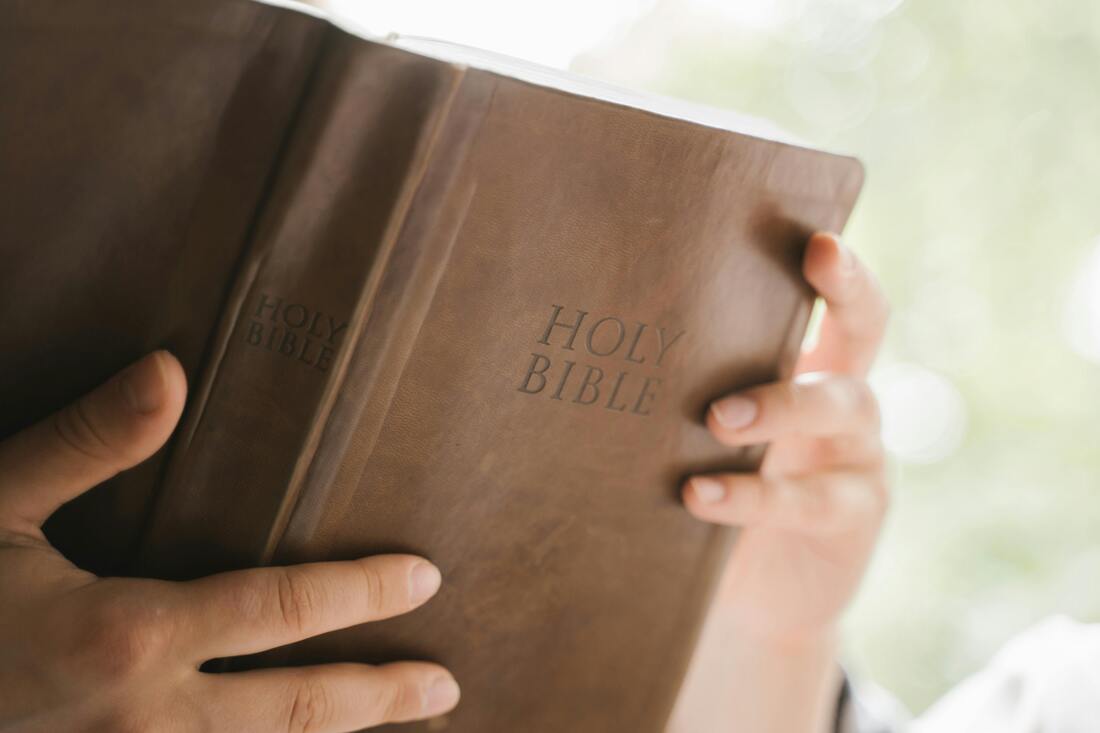

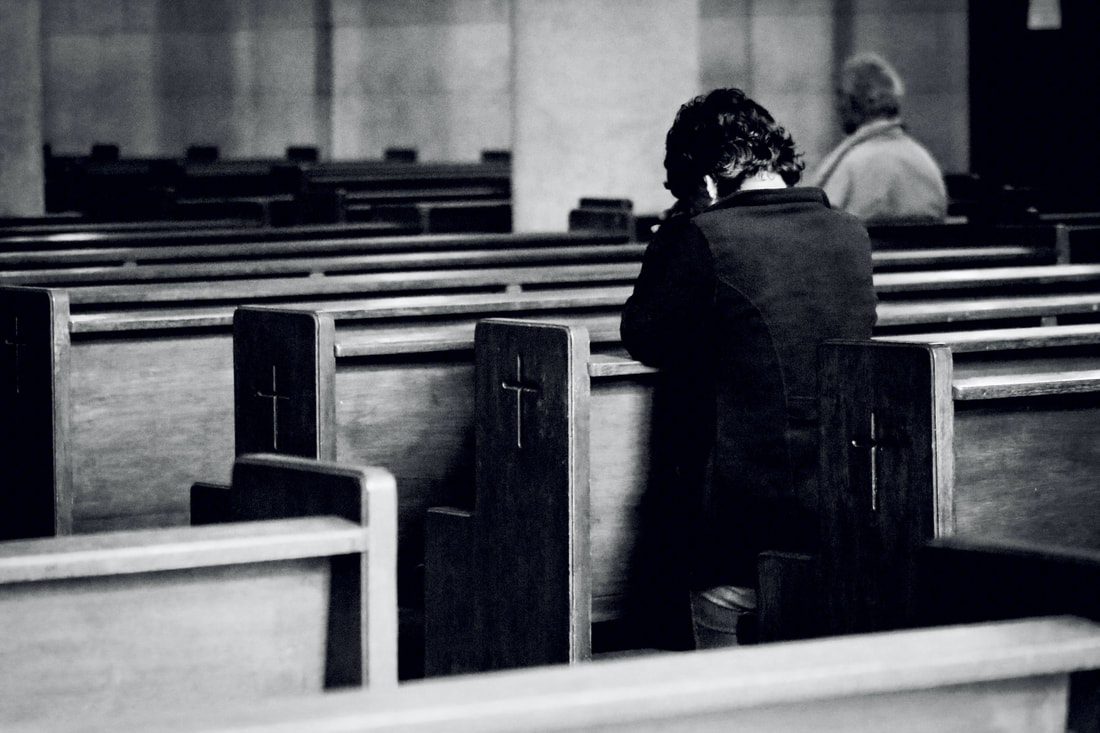
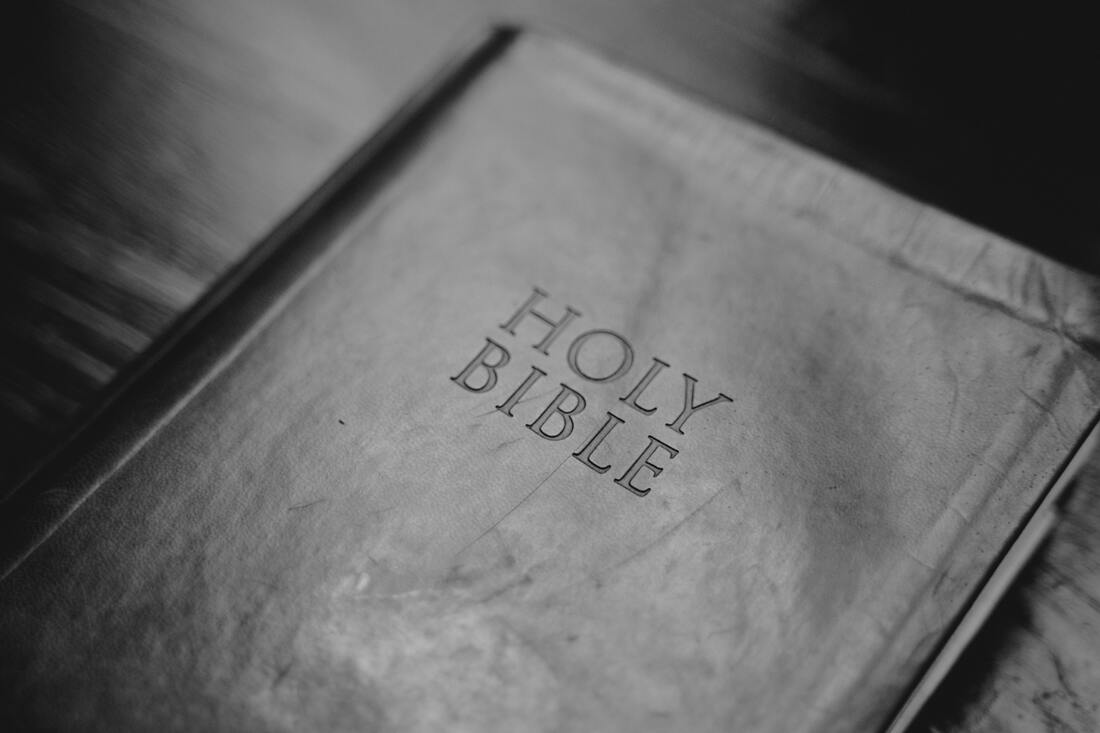

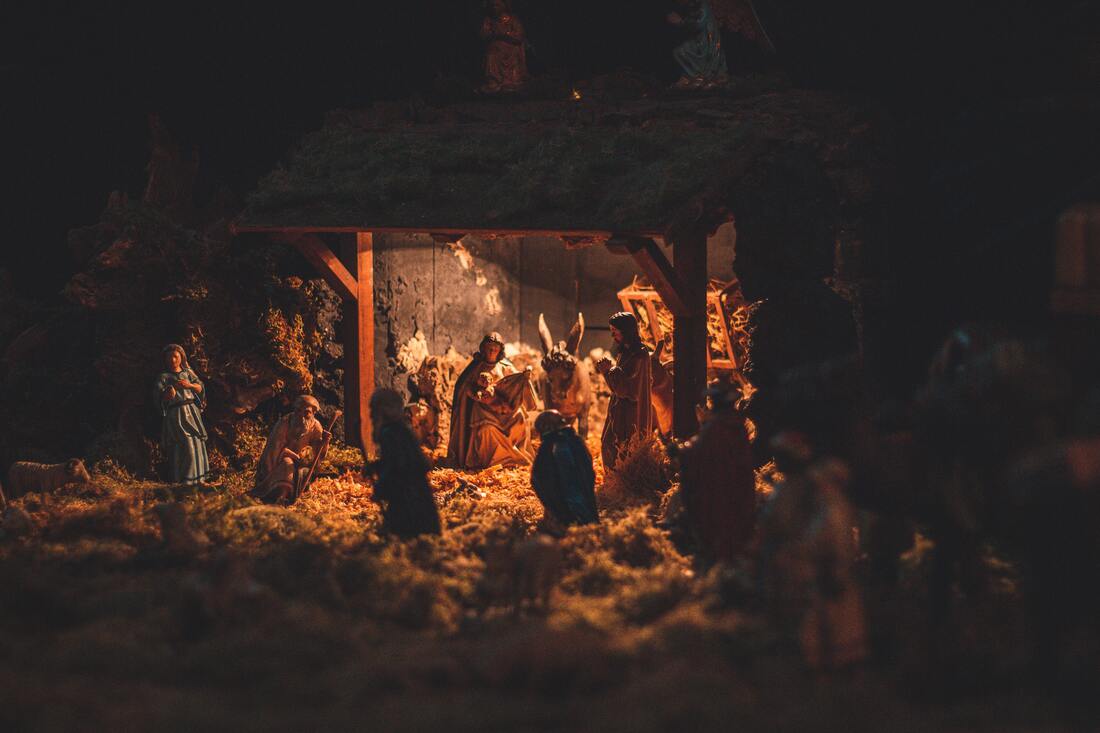
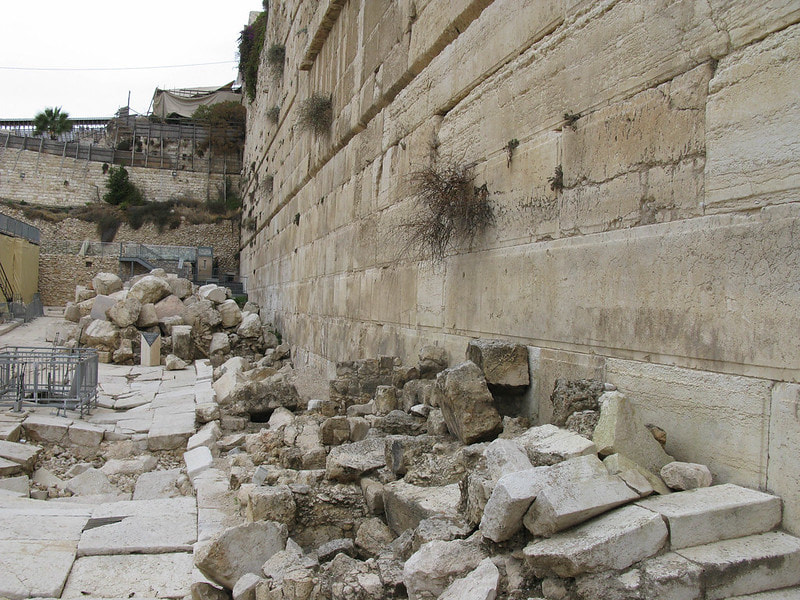



 RSS Feed
RSS Feed